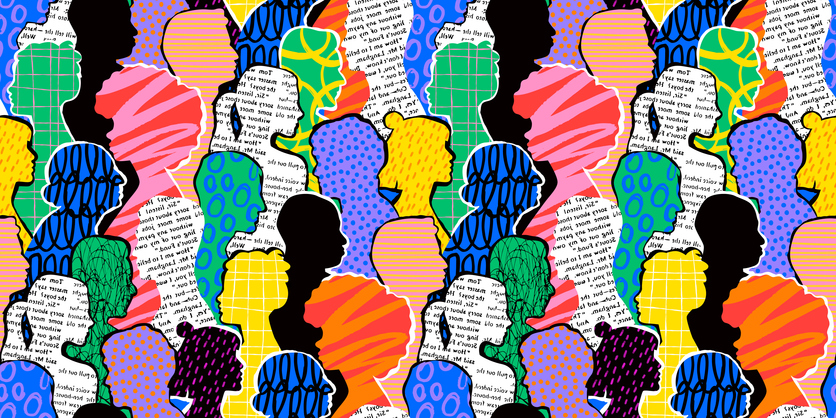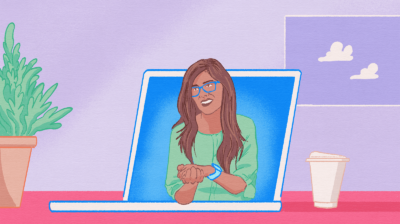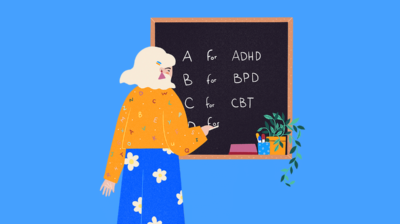What is inclusive therapy?
Learn about the ingredients of inclusive therapy and how to find them.

Racial, ethnic, sexual and gender minority groups are more likely to report negative experiences after accessing counselling or psychotherapy than their peers who do not belong to these groups. People are less likely to have these experiences when they find inclusive therapy.
In this factsheet, you will find information on:
Common barriers to inclusive therapy
Why cultural competence is important for inclusive practice
Why cultural humility is important for inclusive practice
How to find an inclusive therapist
How to have difficult conversations with your therapist
What to do if you don’t have access to an inclusive therapist yet
What are some of the barriers to inclusive therapy?
Inclusive therapy means feeling accepted and understood for who you are, regardless of your culture, ethnicity, gender, sexual identity, race, physical ability, age, or any other core aspect of your identity.
If you’ve had therapy before, you might have felt excluded or misunderstood because of who you are. Even with well-qualified therapists, you may have faced the following barriers in your therapy experience:
- You did not feel comfortable expressing yourself in a natural manner. (If you are neurodivergent, for example, a therapist might have insisted on eye contact at times when it was unwanted)
- Your therapist did not welcome thoughts, behaviours or attitudes that are part of your culture, even when they weren’t causing harm
- Your therapist was reluctant or unwilling to discuss experiences of discrimination, or may even have implied that acts of discrimination were your fault
- Your therapist was reluctant or unwilling to explore how you experience certain differences between you and them (such as age, class, ethnicity, race, sexual identity, gender identity etc.), even when you felt these differences were affecting the therapeutic relationship
- Your therapist was not open to exploring how these differences might contribute to your sense of a power imbalance during therapy. Your therapist might have been equally reluctant to discuss how the client-therapist power imbalance could feel similar to other power imbalances you’ve experienced outside therapy
- Your therapist did not create a space where you felt accepted as a human being or safe in expressing your real self
What is cultural competence?
If you have had any of these negative experiences with a previous therapist, know that you are not alone. Research suggests that racial, ethnic, sexual and gender minority individuals are more likely to benefit from therapy when they see a culturally competent therapist. A therapist may be culturally competent when they:
- Are familiar with the beliefs, attitudes and practices of individuals from a wide variety of different cultures
- Can use this cultural understanding to identify and challenge their unconscious biases or assumptions about people belonging to different cultures
- Can recognise the broader social and cultural context in which a person’s mental health difficulties arise
- Can support and validate a person’s identity and their struggles with fitting in, without treating these challenges as psychological problems that they have created for themselves
- Use language that is inclusive and not demeaning of ethnic, cultural, sexual, or gender differences
How do therapists become culturally competent?
There are many different ways in which a counsellor or psychotherapist may develop cultural competence, from lived experience and immersion in a particular culture, to cultural competence training. Cultural competence training helps therapists understand and respect the diverse backgrounds, identities, and experiences of their clients. It teaches them to be aware of their own biases and to provide care that is sensitive and inclusive of different cultures, beliefs, and lifestyles.
Cultural competence training is not a core component of all counselling and psychotherapy education in Ireland. However, many therapists choose to learn these skills by undertaking a continuing professional development (CPD) course in cultural competence or multicultural counselling. Some may highlight this training or include an inclusivity statement on their websites, which can help you identify whether they offer inclusive services. Other therapists might not have formal training but openly identify as LGBTQ+ or as a Black therapist, and they may specialise in providing therapy that is inclusive and supportive of others within their community.
Despite the negative therapy experiences you might have had in the past, it is possible to find a therapist for whom inclusivity is important.
Drawbacks of the cultural competence approach
Feeling truly accepted for who you are is essential for effective therapy. Research shows that the strength of the therapeutic relationship plays a bigger role in successful therapy than the specific type of therapy used.
Cultural competence can help create a sense of acceptance, but it’s important to know that cultural competence training isn’t always perfect. Here are some potential drawbacks:
- No therapist can fully understand the beliefs, values, and behaviours of every cultural group in detail. Trying to do so can lead to stereotyping or overgeneralising marginalised communities. Overgeneralising means assuming that everyone from a particular cultural group thinks or behaves the same way, which can overlook the unique experiences of each individual.
- Even if a therapist receives cultural competence training, the individuals they serve are unlikely to fit neatly into one box or a single cultural category. People often belong to multiple social communities at once, like being both LGBTQ+ and Black. This combination of identities is known as intersectionality, and how individuals experience and express these multiple identities can vary greatly from person to person
Why cultural humility may be important for inclusive therapy
Many mental health professionals are moving away from the cultural competence model to a related approach called cultural humility. Cultural humility differs from cultural competence in that it focuses on the therapist’s ongoing process of self-awareness and learning. While gaining knowledge of different cultures is important for the therapist, cultural humility places greater emphasis on accepting and learning from each client’s unique lived experience. No one can fully understand someone else’s experience of their culture, but we can strive to learn and adapt. We can also choose to remain conscious of the role of power in our interactions with others.
From the perspective of cultural humility, it is not necessary for an inclusive therapist to know everything about your culture and background before meeting you. Instead, an inclusive therapist should:
- Be flexible enough in their own view of the world to step inside your perspective
- Create a space where you feel valued and heard, regardless any differences
- Appreciate and respect your unique life experiences
- Recognise their own unconscious biases and be willing to reflect on and question these when they surface
- Acknowledge and take responsibility for their mistakes without blaming you for them
- Be open to discussing the role of power in the therapeutic relationship and how it can be shared between client and therapist
- Commit wholeheartedly to lifelong learning from their clients and embracing diverse ways of being in the world
How to find an inclusive therapist
Now that we have a clearer understanding of inclusivity through the ideas of cultural competence and cultural humility, it’s important to know that an inclusive therapist isn’t just defined by an inclusivity statement on their website. Even if a therapist does not mention inclusivity on their website, this doesn’t mean that they are not inclusive. True inclusivity and cultural humility is more about the qualities a therapist shows and the environment they create. It’s about whether you feel comfortable and accepted for who you truly are in their presence.
Finding an inclusive therapist often involves some trial and error. You might need to visit a few different therapists or have several initial consultation calls before you find the right fit.
Questions for determining if you and your therapist are the right fit
To help you determine if a therapist is truly inclusive, consider asking yourself these questions before or after your first session. You can also revisit them throughout your therapy:
- What does inclusivity mean to me?
- Does my current therapist’s definition of inclusivity align with my own?
- What conditions do I need to feel safe and express my true self in the therapy room?
- Does my current therapist help create these conditions?
- How does my therapist handle and reflect on their own biases and assumptions?
- Is my therapist flexible and open to learning about my unique perspective and needs?
- Does my therapist’s training or other sources of experience (e.g., lived experience) equip them to work effectively with people from diverse cultural backgrounds?
- How does my therapist approach sensitive topics, like discussions about cultural, racial, or personal identity issues?
- Does my therapist welcome and engage in difficult conversations about our relationship and the dynamics of power between us?
- How open is my therapist to incorporating my feedback to improve the inclusivity of our sessions?
While true inclusivity is often demonstrated through actions rather than just words, there are organisations dedicated to embodying these principles and actively building inclusive practices. For a list of such organisations, check out our factsheet on mental health supports for ethnic and racial minorities.
How to have difficult conversations with your therapist
If you’re generally satisfied with your therapist but have had a recent negative experience that’s left you feeling uneasy, it can be helpful to address these concerns rather than abandoning the therapeutic relationship. Difficult conversations, while challenging, can be valuable opportunities to strengthen your relationship with your therapist. Remember, a good therapist is not immune from making mistakes but will respond to them graciously and with an eagerness to repair any trust that has been lost.
Below are some suggested steps you could take when having a difficult conversation with your therapist.
Identify the hurtful interaction or event
Clearly describe the specific negative interaction or pattern of behaviour that’s troubling you. Be respectful but direct about how these interactions have affected you, particularly in the context of your identity or values. This can also be a chance to share your individual values and attitudes towards important issues.
Explore the emotional impact of the event
Share how the negative experience makes you feel emotionally. Discuss any past experiences or memories it might evoke, and whether there’s a recurring theme in these experiences. Understanding the emotional impact can help address similar issues in other areas of your life where it might be unsafe to explore them.
Reflect on your expectations
If this interaction has happened more than once, discuss how it has shaped your expectations of therapy. Explore how these expectations might affect your future work together and allow your therapist to share their own expectations of therapy. This can help align both sets of expectations to support your positive growth effectively.
Ask for what you need
Clearly explain what you needed from the interaction and how your therapist might have responded differently. Often, feelings of hurt in negative therapy interactions stem from an unmet need to feel hurt and valued. It is okay to express this need and to help your therapist understand when and how you feel heard and valued.
Be open to the possibility of repair
If you’ve built trust with your therapist, you might be able to repair the relationship together. Many therapists are committed to helping you feel heard and may not realise that a particular interaction or set of interactions has caused you to feel hurt. If you still feel connected to your therapist, consider giving them a chance to acknowledge their mistake, reflect on their behaviour, and work towards rebuilding trust.
What to do if you don’t have access to an inclusive therapist yet
If finding an inclusive therapist is challenging right now, here are steps to manage your mental wellbeing:
- Reach out to friends and/or family: Reach out to supportive friends, family members, or community groups who can offer understanding and encouragement
- Attend support groups: Look for online resources or support groups that align with your needs. Some organisations that campaign for the rights and interests of marginalised groups, such as As I Am, offer online support groups for members of their communities. There may also be opportunities to connect with other like-minded people through local youth groups
- Use reliable online resources: While waiting to access a therapist, you can use trusted online self-help resources for tips on managing anxiety, depression, and emotional regulation. Websites like SpunOut, the HSE’s My Mental Health Plan, and Jigsaw offer helpful information and strategies
- Self-care: Prioritise self-care activities that support your mental health, such as mindfulness and similar meditation-based practices, physical exercise, or creative outlets. Self-care is personal, so find what works best for you, even if it differs from what others might enjoy
- Advocate for yourself: While it can be difficult, especially when struggling with mental distress and social exclusion, continue to seek out resources and advocate for your needs, if you can. Remind yourself that negative stereotypes are not accurate reflections of your human value. Read more on what you can do if you’re experiencing discrimination
Minding your mental health
Finding the right psychotherapist can take time, and it’s normal to face challenges along the way. Some people experience more barriers than others, like the cost of therapy, where they live, or not having a reliable internet connection, which can make it more difficult to access in-person or online therapy. If you’re not able to connect with an inclusive therapist right now, remind yourself that your circumstances might change in the future. There are many inclusive therapists out there, and you may still find the right one for you
In the meantime, there are other ways you can take care of your mental health. You might find it helpful to take a look at our articles on building resilience, improving self-esteem, or learning to change your thought patterns and manage difficult emotions.
It’s completely valid to want a therapist who understands your culture or is open to learning about it and challenging their own biases. We all deserve to work with someone who creates a safe and empathetic space where we can share our thoughts and feelings. Your wellbeing matters, and finding a therapist who respects and understands you may be a meaningful part of your mental health recovery journey.
Feeling overwhelmed and want to talk to someone?
- Get anonymous support 24/7 with our text message support service
- Connect with a trained volunteer who will listen to you, and help you to move forward feeling better
- Whatsapp us now or free-text SPUNOUT to 50808 to begin.
- Find out more about our text message support service
If you are a customer of the 48 or An Post network or cannot get through using the ‘50808’ short code please text HELLO to 086 1800 280 (standard message rates may apply). Some smaller networks do not support short codes like ‘50808’.






